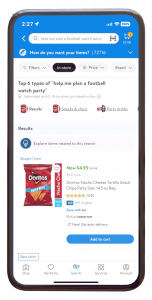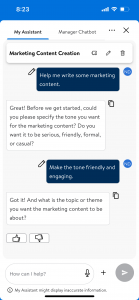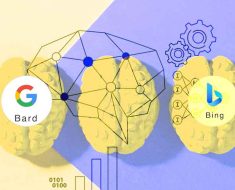 Time and money are two of the most valuable resources people have. And one of the most popular ways for Americans to save on both, is shopping online. According to the U.S. Bureau of Labor Statistics, American families spend six hours per week on household planning and shopping. Many of those families do so digitally at Walmart. The world’s largest retailer, famous for its low prices, generated over $82 billion in e-commerce sales in fiscal year 2023 and is steadily growing its active digital customers.
Time and money are two of the most valuable resources people have. And one of the most popular ways for Americans to save on both, is shopping online. According to the U.S. Bureau of Labor Statistics, American families spend six hours per week on household planning and shopping. Many of those families do so digitally at Walmart. The world’s largest retailer, famous for its low prices, generated over $82 billion in e-commerce sales in fiscal year 2023 and is steadily growing its active digital customers.
In 2024, the company is further improving the digital shopping experience, building generative AI into its search function to deliver customers a helpful and intuitive browsing experience. Using a combination of Walmart proprietary data and technology and large language models, including those available in Microsoft Azure OpenAI Service, as well as retail-specific models built by Walmart, the new design serves up a curated list of the personalized items a shopper is looking for.
At CES 2024, Walmart President and CEO Doug McMillon and Microsoft Chairman and CEO Satya Nadella introduced the new AI innovations to benefit Walmart customers.
Study after study shows that AI is driving impact and value across businesses.
- McKinsey reports AI will create $400-660 billion in value for the retail and consumer goods industry.
- FTI Consulting data shows nearly 80% of online shoppers believe AI personalization can enhance their online experience.
- An IDC study commissioned by Microsoft found that for every $1 a retail and consumer packaged goods company invests in AI, it is seeing a return of $3.45.
Generative AI-powered search

Walmart built an all-new generative AI-powered search function across iOS, Android and its own website. The new capability is specifically designed to understand the context of a customer’s query and generate personalized responses. Soon, customers will have a more interactive and conversational experience, get answers to specific questions, and receive personalized product suggestions.
For example, a parent planning a birthday party for a child that loves unicorns. Instead of multiple searches for unicorn-themed balloons, napkins, streamers, etc., the parent can simply ask the question “Help me plan a unicorn-themed party for my daughter.”
One of the reasons why Walmart and other leading retailers are choosing Azure OpenAI Service is the ability to access the most advanced AI models in the world while backed by the enterprise-grade capabilities found in Microsoft Azure including security, compliance and regional availability. Generative AI in retail is particularly exciting as it can help usher in a new way of shopping; shifting from “scroll searching” to “goal searching,” which makes the digital shopping experience more seamless and intuitive.
Don’t forget about the associates!

Both Walmart and Microsoft share an aligned vision around how AI can help organizations and their people be more productive, more satisfied in their work and go on to solve the most pressing problems.
Over the summer, Walmart launched a new tool, giving its 50,000 non-store associates access to its new “My Assistant” app, which was created and built by Walmart and leverages a unique build of Walmart proprietary data, technology and large language models in Azure OpenAI Service. In just a few months, the app has already made a big impact for associates, assisting with a range of tasks, from summarizing long documents to assisting in the creation of new content.
A history of success
This is just the latest evolution in the Walmart and Microsoft relationship.
In 2018, the companies established a strategic partnership to drive Walmart’s digital transformation. As one of Walmart’s preferred and strategic cloud providers, Microsoft has supported Walmart on a variety of different cloud projects. From powering access to electronic health records at its in-store clinics to centralizing, democratizing and optimizing data, the companies have and will continue to collaborate to accelerate innovation.
Other ways to AI
While Walmart’s approach to generative AI uses a combination of large language models, retail-specific models, and their own proprietary data built on top of Azure OpenAI Service, other retailers may have different scenarios that require an alternative approach. That’s why Microsoft offers a broad portfolio of prebuilt, low-code and pro-code solutions that can benefit all retailers and shoppers, no matter where they are on their respective journey.
Visit the Microsoft Cloud for Retail page to learn more.




